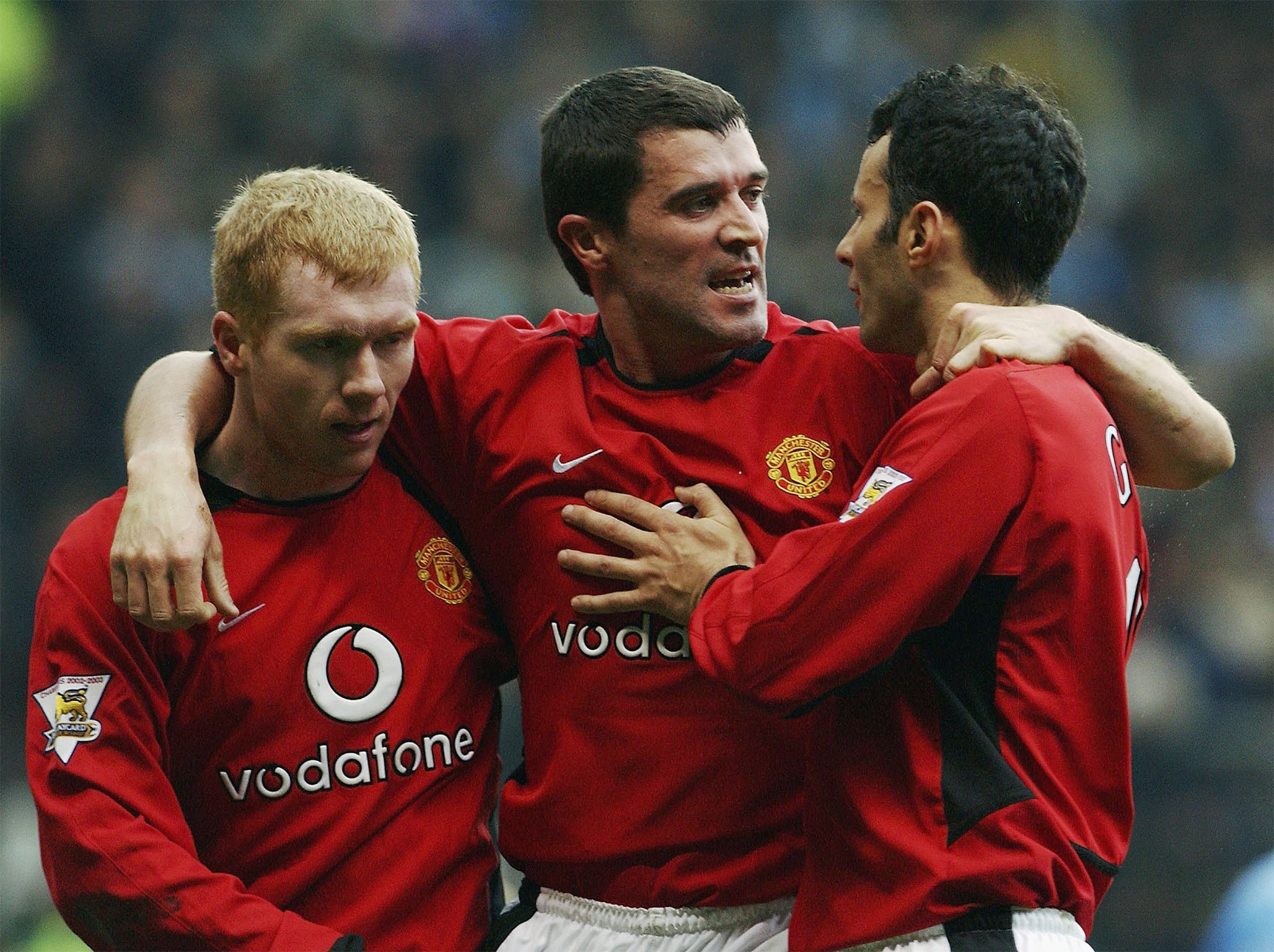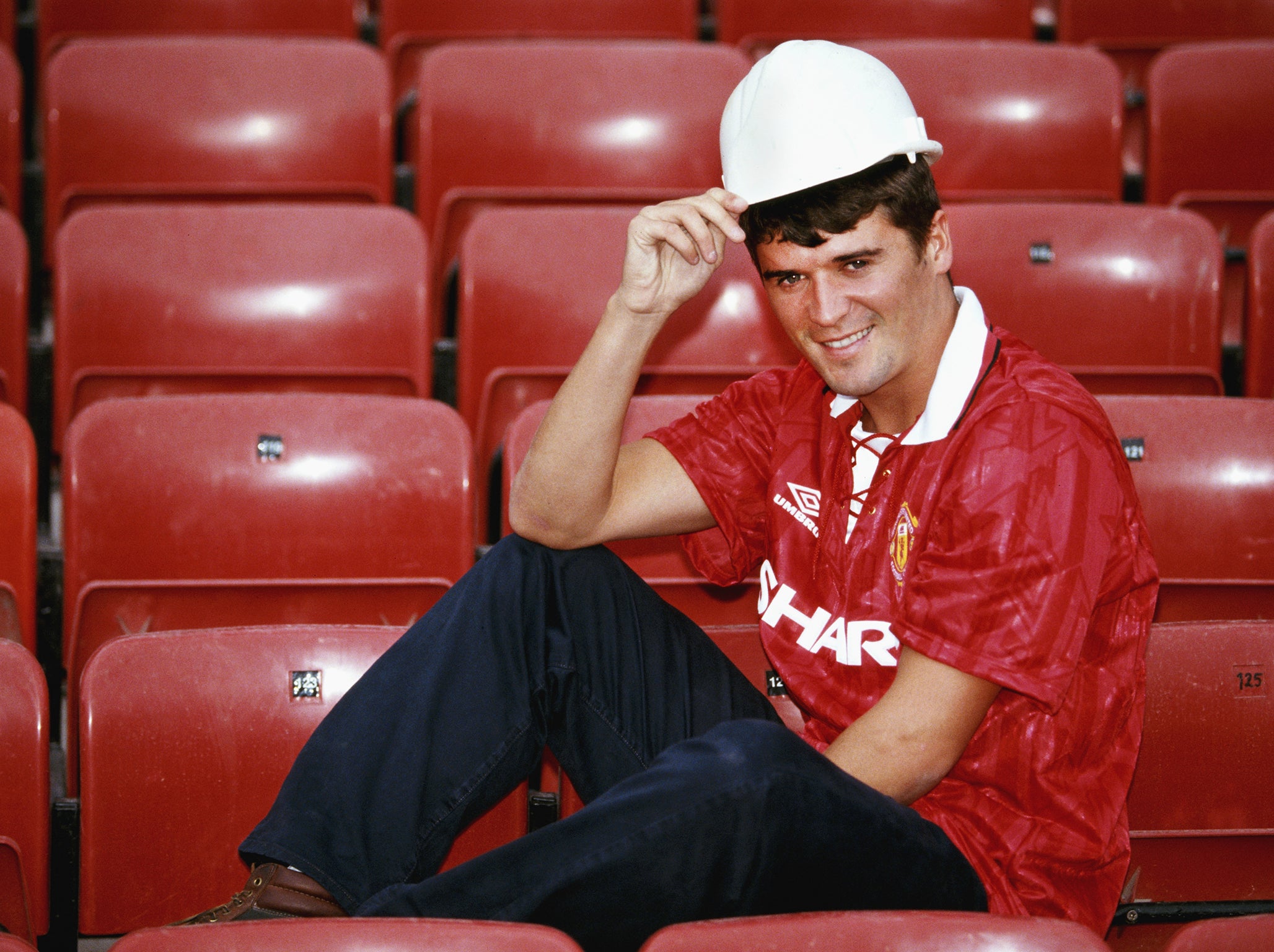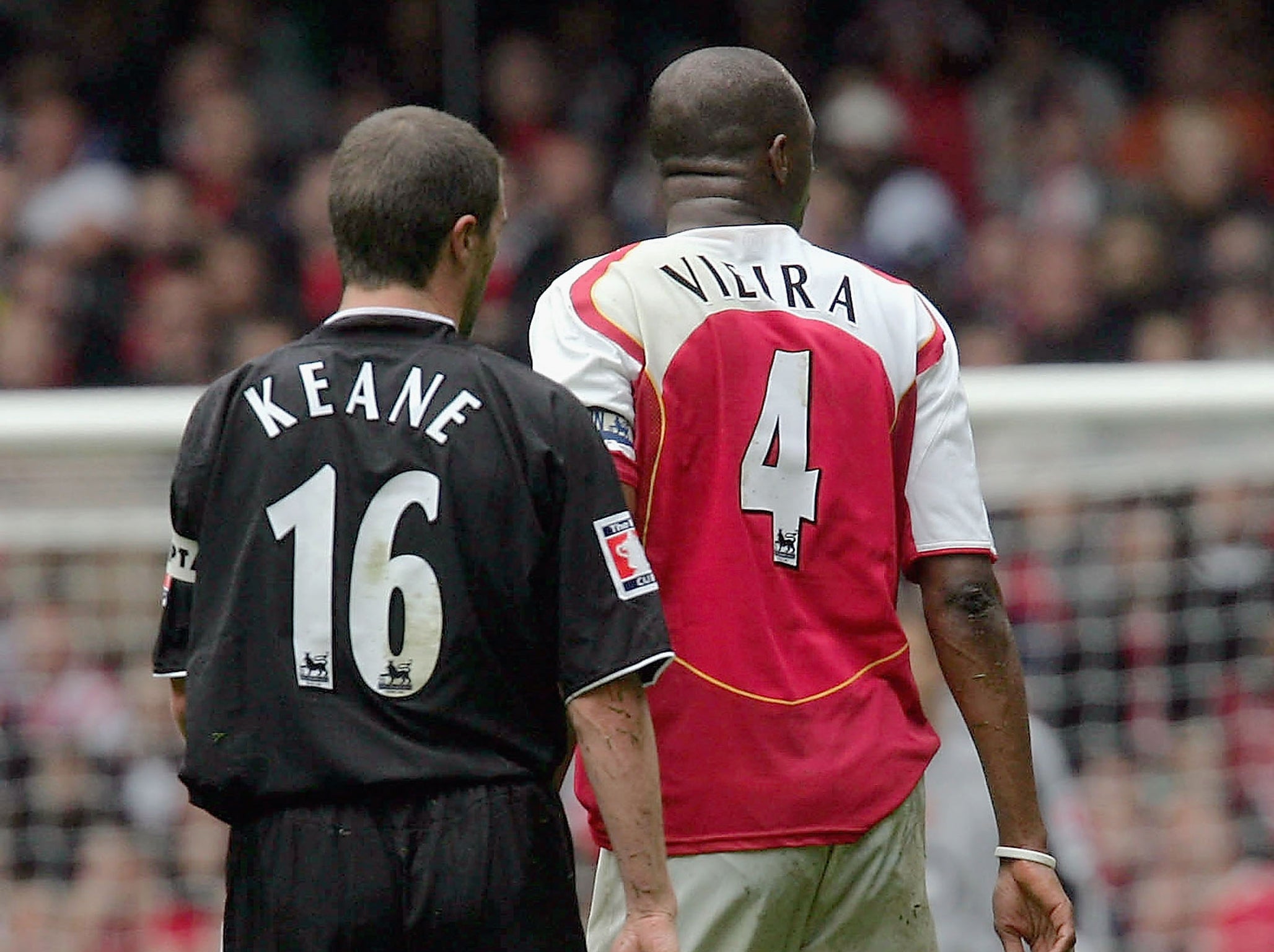Premier League 100: In praise of Roy Keane, the physical embodiment of Manchester United’s winning attitude
At No4 in The Independent’s 100 greatest Premier League players is Roy Keane, the player to have psychologically influenced the tournament more than anyone else

Your support helps us to tell the story
From reproductive rights to climate change to Big Tech, The Independent is on the ground when the story is developing. Whether it's investigating the financials of Elon Musk's pro-Trump PAC or producing our latest documentary, 'The A Word', which shines a light on the American women fighting for reproductive rights, we know how important it is to parse out the facts from the messaging.
At such a critical moment in US history, we need reporters on the ground. Your donation allows us to keep sending journalists to speak to both sides of the story.
The Independent is trusted by Americans across the entire political spectrum. And unlike many other quality news outlets, we choose not to lock Americans out of our reporting and analysis with paywalls. We believe quality journalism should be available to everyone, paid for by those who can afford it.
Your support makes all the difference.A story of failure may not feel the most fitting place to start with one of the most decorated Premier League players, but the point is how much it drove Roy Keane, and thereby the history of the competition as a whole.
On the last day of the 1997-98 season, as Arsenal celebrated their title win, Ian Wright lifted his medal towards a camera. He had a message to send. “Keano,” Wright shouted. “I’ve got a winner’s medal!”
That was because, when they played, Keane used to regularly goad the striker that he’d “only got loser’s medals”.
It was the type of attitude that riled opposition, and his great rival Patrick Vieira used to get extremely tense and tetchy in the week before he’d face Keane, but not as much as the prospect of failure riled Keane. He followed that 1997-98 loss, and his cruciate injury, with the most driven season of his career and an unprecedented treble with Manchester United. “The fear of failure that drives us all is exorcised,” Keane later wrote of 1998-99.
Or, really, the fear that really drove him more than anyone.
This was the danger if you went head to head with Keane, in a physical and literal sense. It was all about escalation. And he could go to a level of intensity above anyone. He drove United a level above anyone, since he was at the centre of the most dominant era of success the Premier League has seen.
Sir Alex Ferguson once described Keane as the embodiment of his winning attitude on the pitch and that is all the more appropriate because, if the great manager is the figure to have influenced the Premier League more than anyone, Keane is the player to have psychologically influenced the Premier League more than anyone.
That really isn’t an exaggeration, not when you consider his longevity, the number of titles he won and his absolutely key role in all of them.
Forget the debate about Steven Gerrard, Frank Lampard and Paul Scholes. This was the player Scholes looked up to.
You only have to look at what his former teammates like Gary Neville say. “His greatest gift was to create a standard of performance which demanded the very best from the team,” Neville said. “You would look at him busting a gut and feel that you’d be betraying him if you didn’t give everything yourself.”
You only have to look at his seven league medals, and his performances in securing them.

There are only two players in this list ahead of Keane, and they are of course Cristiano Ronaldo and Thierry Henry. While both were more naturally talented than Keane, neither were as essential to as many title-winning teams, and in as many different ways.
That is why the superior talent of those two shouldn’t be overstated. Keane was very far from just the uncompromising general of caricature. He was a serious midfielder of historic ability.
On signing for Ferguson’s first title-winning side in 1993, the Irish midfielder took them up a level as the rampaging box-to-box midfielder they had lacked, with that extra raw energy bringing a more emphatic title win and a first double for United.
Ferguson decided to rip up the team in 1995, and usher in the Class of 92. A side that initially seemed short of maturity led to Alan Hansen’s comment that “you don’t win anything with kids”, but you do if those kids are led by someone already as ferocious as Keane. He had already developed into a senior figure by then along with Eric Cantona and Peter Schmeichel.

It is telling that the only league title United didn’t win between 1995 and 2001 was the one where Keane was injured for almost all of the season, through a cruciate ligament injury. The source of that was foolish, as Keane admitted himself as he had “wildly” chased down Alfe-Inge Haaland, but the nature of it and period out brought a realisation in Keane. He transformed how he approached the game, becoming the model pro in terms of preparation and fitness as well as effort, and that thereby transformed his game. In his physical prime by then, Keane became the complete modern world-class midfielder.
It was this period that brought the treble, three titles in a row and maybe his best individual performance. He emphatically bested his greatest midfield rival in Vieira, scoring twice at Highbury in August 1999 to help United come from behind and beat Arsenal with a stoppage-time winner.
The two clubs had their greatest race in 2002-03 and, while Keane was by then already suffering from the hip injury that would ultimately curtail his career, it would bring out maybe his greatest and most underrated quality: his passing. Keane could deliver a pristine through ball as perfectly as anybody, as he often did that season and beyond.

This what is so often overlooked, because of the overbearing snarling image. He was as composed on the ball as he was tenacious in winning it.
That’s why he won so much. That’s why he rarely experienced failure, in either the league, or any challenge.
It's why he earned more winner's medals than almost anyone.
Join our commenting forum
Join thought-provoking conversations, follow other Independent readers and see their replies
Comments